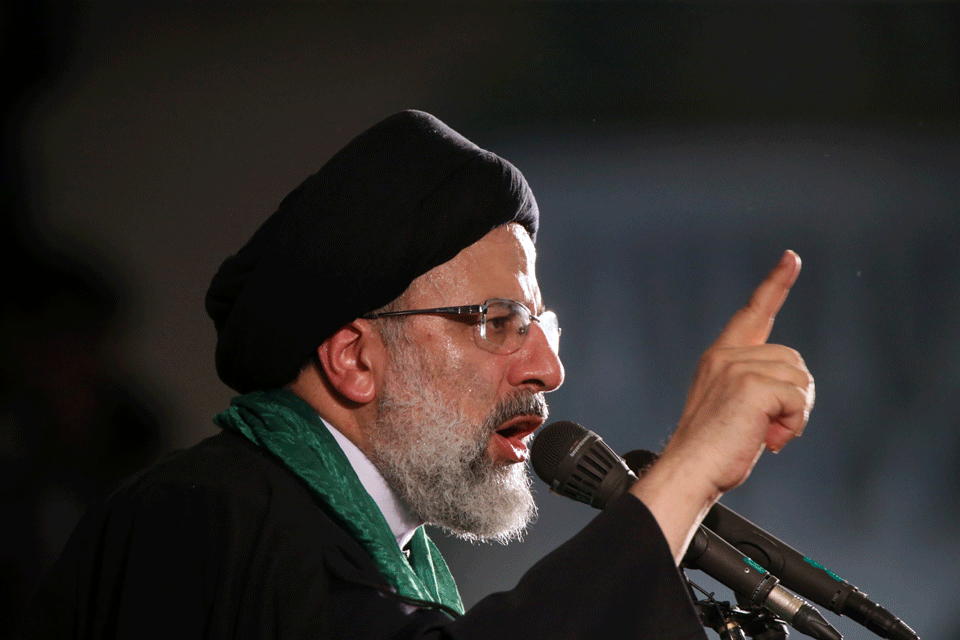Iran’s President Ebrahim Raisi, a prominent political figure widely considered the natural successor to Supreme Leader Ayatollah Ali Khamenei, was declared dead on Monday morning following a helicopter crash in the East Azerbaijan province. The tragic incident, which also claimed the lives of other senior officials, has left the nation in mourning.
Ebrahim Raisi, 63, had a storied career marked by his deep connections within Iran’s judiciary and religious elite. Known for his hardline and religiously conservative views, Raisi’s political journey began long before he ascended to the presidency in 2021.
Early Years and Rise to Prominence
Raisi’s journey began at the young age of 15 when he started studying at the prestigious Qom religious seminary. His education under some of the era’s most notable Muslim scholars laid the foundation for his future influence. By his early 20s, Raisi had begun his career in the judiciary, serving as a prosecutor in various cities before moving to Tehran as a deputy prosecutor.
In 1983, Raisi married Jamileh Alamolhoda, the daughter of Mashhad’s Friday Prayer Imam Ahmad Alamolhoda. Together, they had two daughters. His judicial career, however, was not without controversy. In 1988, Raisi was part of a committee overseeing the execution of political prisoners, a role that attracted significant criticism and led to sanctions by the United States.
Raisi’s rise continued under Supreme Leader Khamenei, who appointed him as the prosecutor of Tehran in 1989. His status within Iran’s establishment was further cemented in 2016 when he became the chairman of the Astan Quds Razavi, the largest religious endowment in Mashhad.
Political Ambitions and Presidential Tenure
Raisi first ran for president in 2017 but was defeated by incumbent Hassan Rouhani, who had negotiated the 2015 nuclear deal with world powers. Despite this setback, Raisi remained a prominent figure in Iranian politics and successfully ran for president again in 2021, securing 62% of the vote. However, his election was marred by low voter turnout and the exclusion of several reformist and moderate candidates.
During his presidency, Raisi faced significant challenges. The U.S.’s unilateral withdrawal from the nuclear deal under former President Donald Trump had already strained Iran’s economy. The COVID-19 pandemic further exacerbated these difficulties, with the death toll surpassing 97,000 by August 2021.
Leadership and Controversies
Raisi’s tenure was marked by his strong connections within the religious establishment and his ability to maintain relations across various branches of government and military. Despite this, he presided over a period of significant public discontent. Economic hardships and the perceived prioritization of defense over domestic issues fueled widespread frustration.
In late 2022, Iran was rocked by protests following the death of Mahsa Amini, a young woman who died in custody after being detained for allegedly violating hijab regulations. The protests, which saw women removing and burning their hijabs, were met with a severe crackdown, resulting in the deaths of approximately 500 people and the execution of several protesters.
Internationally, Raisi took a defiant stance against the U.S. regarding the nuclear deal, escalating Iran’s nuclear program while asserting that the country had no interest in developing nuclear weapons. His presidency also saw heightened tensions with Israel, culminating in a significant missile and drone attack in April 2024 following an Israeli strike on an Iranian consular building in Damascus.
A Controversial Legacy
Ebrahim Raisi’s presidency was marked by both controversy and influence. His strong relationships within Iran’s establishment positioned him as a formidable leader, potentially poised for the highest role in the land. His sudden death leaves a significant void in Iranian politics and raises questions about the future direction of the country’s leadership.
As Iran mourns the loss of its president, the nation reflects on Raisi’s complex legacy, marked by his unwavering commitment to the ideals of the Islamic Republic and the significant challenges and controversies that defined his tenure.

